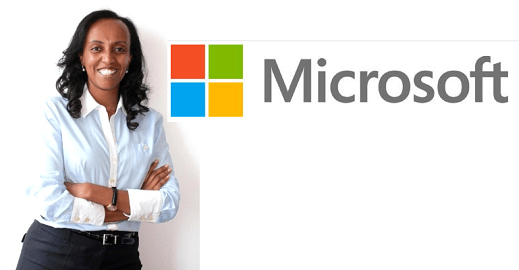14 Soft Skills You Should Put on Your CV

Not all the information you require to make a hiring decision is included in a CV. Having the appropriate soft skill set can help ensure that a candidate will not only fit in but also thrive in your business culture.
We posed the following query to members of the Young Entrepreneur Council in an effort to determine what those essential skills were:
What “soft skill” is the most important one to look for in a potential hire?
1. Curiosity

While we hire for specific roles, we know that in six months (or sooner!) the needs of the company and that role will change. I want folks who can be great at their job today, but who are also always thinking about what we can do better, both internally and for our customers. A team of curious folks who ask questions will help make sure your business doesn’t stagnate. —Aaron Schwartz, Passport
2. Emotional intelligence

When a person demonstrates a high emotional intelligence, it shows that they are perceptive and, most importantly, self-aware. New hires who possess a high emotional intelligence are always appealing candidates, because this is not a skill you can easily teach. In a team-based organization, high self-awareness is a very valuable attribute. —David Ciccarelli, Voices.com
3. Email communication skills

An essential soft skill is the ability to produce typo-free, well-written, well-formatted email communications throughout the hiring process. We have a high bar in terms of what we expect from our work product. If new hires cannot nail straightforward email communications pre-hire when they’re putting their best foot forward, I can’t expect that they will do so after they’ve been hired. —Douglas Baldasare, ChargeItSpot
4. People skills

My business deals with clients on a daily basis. We pride ourselves on excellent customer service and building a genuine rapport with clients. It’s imperative that everyone on my team understands the importance of this skill, whether or not they work with clients directly, as it is the core of our business. —Stanley Meytin, True Film Production
5. Hunger

The people I bring onto my team are go-getters. I want someone who is hungry to succeed, so that I don’t have to always instruct on what to do next. I always love someone who comes to me with ideas of how to grow and improve. There is a multitude of skills I look at when making a hiring decision, but hunger is a big one. —Renato Libric, Bouxtie Inc
6. Self-Awareness

You know that the right hire won’t be great at everything under the sun. Ask an applicant what they know they’re not good at, and they should be able to answer this questions quickly and specifically. Generic answers will tell you that they have weak self-awareness. Hires who don’t already know their own weak points require heavy management, because they won’t know when to stop and ask for help. —Roger Lee, Captain401
7. Humor and positivity

There is so much stress at times that it helps to have people on the team who can inject humor and positivity into the mix at an appropriate time. This helps the rest of the team look on the brighter side and approach any challenges in a better frame of mind. It also reduces tension and conflict. Plus, it just makes work more fun. —Angela Ruth, Due
8. Willingness to make phone calls

In a world of email and text, it’s amazing how many people refuse, or downright hate, to get on a phone call. In business, there are times when you can accomplish more in a 20-minute phone call than in 200 emails. When evaluating a new hire, look at their ability to pick up the phone, return your call, and carry the conversation. This quality can make or break one’s ability to thrive at their job. —Kim Kaupe, ZinePak
9. Persistence

No matter what the role, if the potential hire isn’t persistent, he or she is likely to throw in the towel at any immediate sign of a challenge. When one is persistent, though, he or she will dig for the answer, the sale, or anything else. —Darrah Brustein, Network Under 40
10. Honesty

I would call honesty a skill in this day and age of unethical behavior in business, fake news, and leaders who continually lie to their audiences. Finding honest and ethical new hires is a real asset. —Zach Binder, Ipseity, Inc
11. Ability to learn from experience

Learning is a critical skill for every job, but not everyone wants to learn, and some people struggle with learning from experience rather than from traditional classes. Much of how we work is learned “on-the-job,” so it is critical to assess a potential hire’s learning agility. One way is to listen for how the person has learned from their previous experiences and then applied that information. —Mamie Kanfer Stewart, Meeteor
12. Self-Motivation

Hiring someone who is self-motivated and disciplined is essential, especially because our team is fully remote. Remote work comes with many perks, but it’s not for everyone. Remote employees need to be extremely disciplined and understand that just because they are not working in a physical office doesn’t mean they don’t have to work. We look for people who have the motivation to get the work done. —Dave Nevogt, Hubstaff.com
13. Autodidactism

Since traditional job descriptions have become loose, employees are expected to obtain a broader amount of skills to keep their competitive value sharp. Being an autodidact is a great trait to have in a new hire. It means they will always be focused on learning and won’t shy away from acquiring new skills. If you ever need to make a pivot, these are the people who will succeed. —Nicole Munoz, Start Ranking Now
14. Versatility

I want to bring people on board who aren’t limited to one focus. Having an employee who is knowledgeable in multiple facets of the business not only makes us stronger as a team, but that knowledge will help us grow in the future. —Abhilash Patel, Recovery Brands







